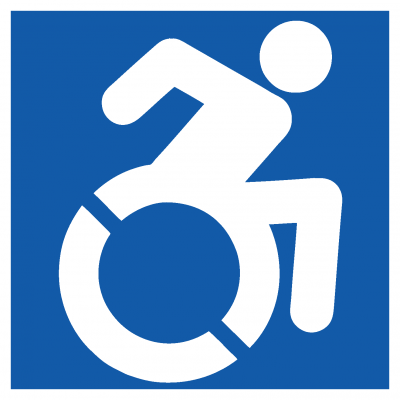
Let me start by saying, accessibility is a human rights issue, not an afterthought. Frankly, it’s an insult to people with disabilities that access is even a subject of debate. And yet…
The Technology, Equality, and Accessibility in College and Higher Education Act (i.e., the TEACH Act) is currently under debate in congress. The legislation requires that technologies used in college classrooms be accessible to all students, including students with disabilities. It is entirely possible that you have not heard of the TEACH Act, but for those who it most affects—students with bodies that deviate from the norm—the stakes are quite high. The bill has some strong support, but also strong opposition, from surprising sources.
Digitally mediated technologies play a significant role in the pedagogies of many college professors, and success in a class often depends upon the successful navigation of these technologies. Though most would agree that giving some students learning resources while withholding those resources from others is egregiously unfair, students with disabilities often find themselves on the losing end of just this scenario. Rather than a malicious or calculating decision on the part of educators, these inequities are instead a product of ambient ableism, in which general logic accounts for needs of ‘typical’ bodies, while those with bodies deemed ‘non-typical’ are expected to adapt and make due.
This norm-privileging logic guides those who argue against the TEACH act. The opposition is led by the American Council on Education (ACE), which, along with 20 other educational groups, wrote a letter to Tom Harkin, the senator who chairs the Education Committee, detailing their concerns. They argue that TEACH will prevent technological development and implementation, harming all students. As stated in the letter:
This provision creates an impossible-to-meet standard for institutions and will result in a significant chilling effect in the usage of new technology
Yes, perhaps requiring educators to employ only accessible technologies in the classroom will ‘chill’ the use of new technologies. However, this ‘chilling’ points not to a problem with TEACH, but rather, an ingrained problem of prejudice, manifesting in nothing less than institutional bigotry.
ACE’s argument rests on ableist practices, in which technologies—both ‘built’ and digital— are created for ‘typical’ users, and then when financially plausible and temporally convenient, adapted for people with different needs. This is a logic that dismisses, or entirely ignores, the principles of universal design, slugging off the needs of those on the margins with a flippant ‘ya, we’ll get to you when we have time, but let’s take care of the Normals first.’ It is a model of build-then-adapt, rather than build with the wide variety of human needs in mind.
The Americans with Disabilities Act (ADA) requires ‘reasonable accommodation’ for those utilizing public and commercial services. In 2010, this was expanded to include accessible design. The legal debate, then, rests on what is reasonable. I implore those who oppose TEACH to consider the implications of defining equal access to educational materials as even potentially unreasonable.
Jenny Davis is an Assistant Professor of Sociology at James Madison University and a weekly contributor for Cyborgology. Follow Jenny on Twitter @Jenny_L_Davis

Comments 3
Atomic Geography — October 3, 2014
Jenny thanks for bringing this issue to our attention. I wasn't aware of this bill and the issues at stake will become increasingly important.
So from an uneducated but interested perspective, I did a bit more digging. Laying out ACE's position in more detail is a memo from their lobbyist.
One of their core concerns is that the "reasonable accommodation" standard would be replaced by "equally effective".
This is a significant expansion of the ADA standard. I do not have the knowledge of expertise to evaluate the implications of this, but I can see they could be substantial. In that light I think their position merits a respectful and substantive response.
As a disable person, I have thought a great deal about the "reasonable accommodation" standard. Since my disabilities are invisible, I bump up against RA immediately upon leaving my house. I think many conflicting issues arise out of legitimate concerns of people with and without disabilities.
Perhaps a follow up post could provide more detail about the specific ways both the advocates and opponents of this bill see it playing out.